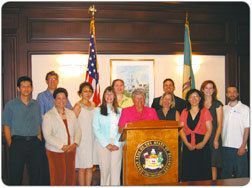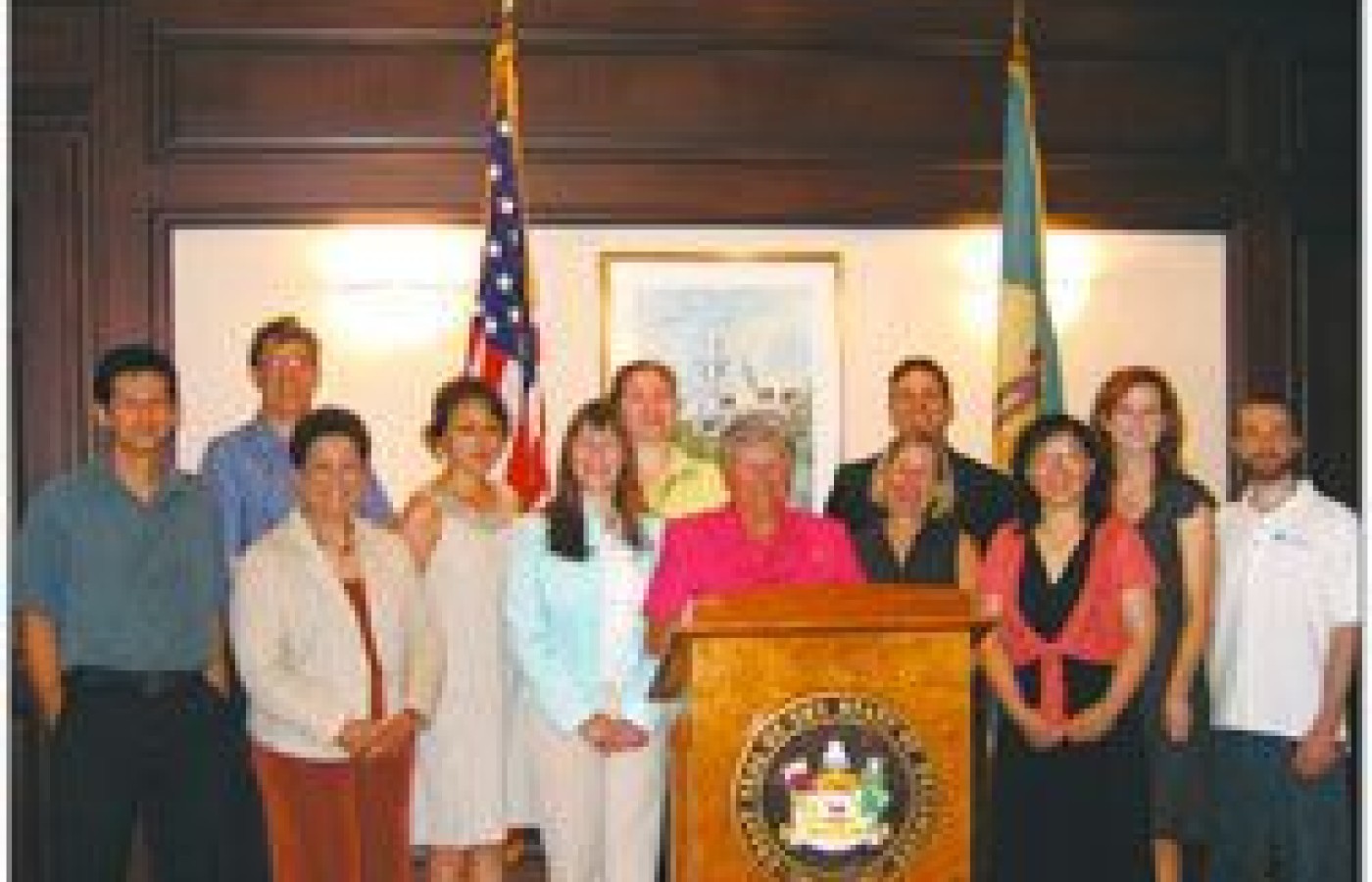The most important relationship I seek to nurture in the treatment room is the one a patient has with their own body. We live in a culture that teaches us to override pain, defer to outside authority, and push through discomfort. Patients often arrive hoping I can “fix” them, but the truth is, we can’t do the work for them. We can offer guidance, insight and support, but healing requires their full participation.
Another First for Delaware
Editor's Note: The bill synopsis and a link to the full text of the legislation can be found online at http://legis.delaware.gov/LIS/lis144.nsf/vwLegislation/HB+377.
The official nickname for the state of Delaware is "The First State" because it was the first of the 13 original states to ratify the U.S. Constitution on Dec. 7, 1787. On June 27, 2008, AOM practitioners in Delaware chalked up another first for their state when Gov. Ruth Ann Minner signed into law H.B.377, which provides licensing standards for the first time to cover the practice of acupuncture and Oriental medicine, including the use of herbs.
The synopsis of the bill states:

This Bill provides for the licensing of professional acupuncturists in the State of Delaware. The purpose of this Bill is to protect the public and provide a defined scope of practice for those individuals qualified to practice as licensed acupuncture practitioners. The Bill sets out the standards that are needed to become a Licensed Acupuncturist and establishes an Acupuncture Advisory Council. The Advisory Council is comprised of four acupuncturists, one physician member of the Board of Medical Practices and one ex officio member that is a Delaware physician with expertise in acupuncture.
The Bill also requires that needles used in the practice of acupuncture shall only be pre-packaged, single use, sterile acupuncture needles. These needles shall only be used on an individual patient in a single treatment session and disposed of according to federal standards for biohazard waste.
"A grandfathering clause exists for those who have been practicing in Delaware within the 12 months prior to the enactment date. Nothing in this Bill limits, precludes, or otherwise interferes with the professional activities of other individuals and healthcare providers who are allowed to perform acupuncture. This includes chiropractic, medical and osteopathic physicians.
The bill also outlines the scope of practice for AOM in the state of Delaware:
"Acupuncture" refers to a form of health care, based on a theory of energetic physiology that describes and explains the interrelationship of the body organs or functions with an associated acupuncture point or combination of points located on 'channels' or 'meridians.' Acupuncture points shall include the classical points defined in authoritative acupuncture texts and special groupings of acupuncture points elicited using generally accepted diagnostic techniques of Oriental Medicine and selected for stimulation in accord with its principles and practices. Acupuncture points are stimulated in order to restore the normal function of the aforementioned organs or sets of functions. Acupuncture shall also include the ancillary techniques of Oriental Medicine including moxibustion, acupressure or other forms of manual meridian therapy and recommendations that include oriental dietary therapy, supplements and lifestyle modifications according to the principles of Oriental Medicine. Oriental dietary therapy shall be defined as recommending, advising or furnishing non-fraudulent information about herbs, vitamins, minerals, amino acids, carbohydrates, sugars, enzymes, food concentrates, foods, other food supplements, or dietary supplements."
The story of how the law came into being really is a case of "the right thing at the right time," according to Delaware acupuncturist Lorna Lee, who spearheaded the move toward legislation. Lee told Acupuncture Today that there is no state association in Delaware, nor were there any lobbyists working to pass the bill. The Maryland Acupuncture Society did donate some funds. With all of that, the bill unanimously passed the Delaware House and Senate.
One of the major proponents was actually the Delaware Medical Society, which pushed for the addition of herbs into the bill. "We set out just to have an acupuncture bill, but the Delaware Medical Society wanted the bill to reflect both acupuncture and herbs," said Lee. "It would protect our ability to work with herbs, and the doctors were happier with the higher licensing standard."
Lee further explained, "Although we will be operating under the Board of Medical Practice, our Acupuncture Advisory Council will in effect be doing all the work of governing the profession. They have the power to waive the OM licensing requirement for individuals with exceptional training and experience, such as senior practitioners who may have studied before the NCCAOM or accredited schools existed, or for practitioners trained in other countries. All of the 27 practitioners currently in Delaware will be grandfathered in, regardless of their level of herbal training."



